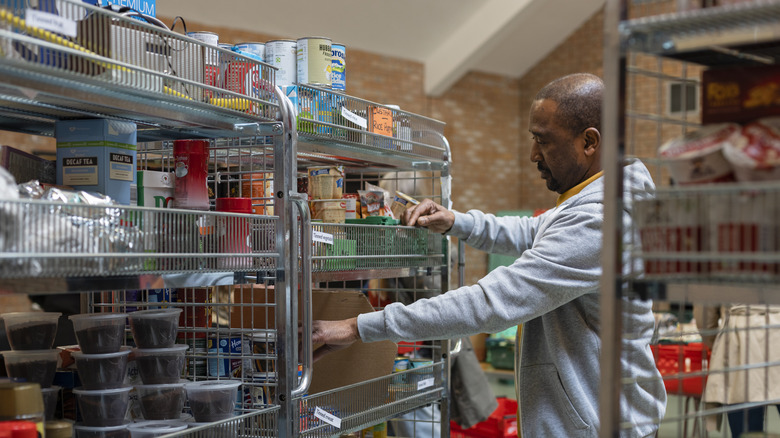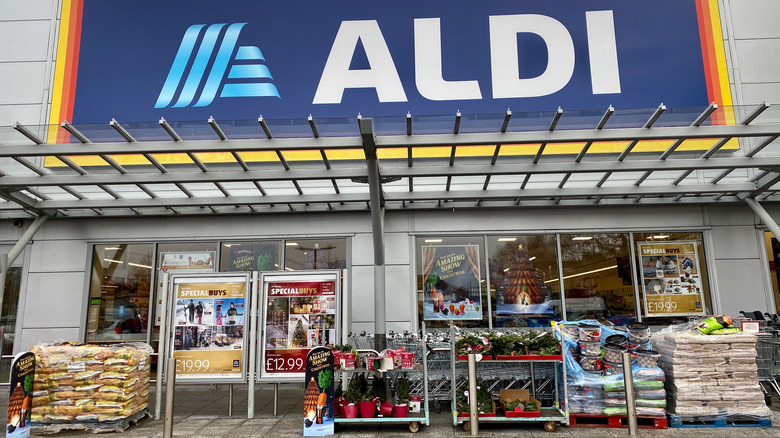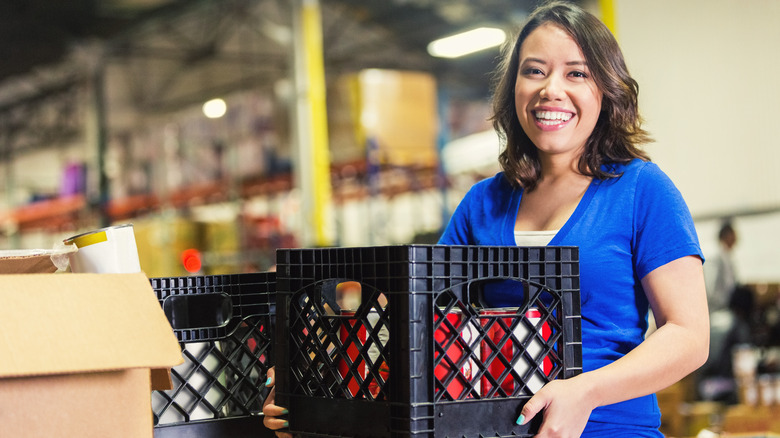Where Does Aldi's Leftover Stock Actually Go?
Food waste is a huge global problem. Twenty percent of all meat, poultry, and dairy worldwide goes uneaten, along with 30% of grains, 35% of seafood and fish, and 45% percent of fruits and veggies. While most of that waste occurs in private homes, with consumers responsible for almost half of what is wasted in the U.S., retailers still play a sizeable role. This might have you wondering what your favorite grocery store does with its leftovers. Aldi, like most major grocers, donates leftovers that are not past their expiry date (and therefore still considered safe for human consumption) to charities and food banks. In the U.K., that amounted to just under 11% of the chain's excess stock in 2022. In the U.S., 33 million pounds of food were donated in 2021.
So what about the rest? Unfortunately, the vast majority of leftover stock is past its expiration date and cannot be donated or distributed by food banks. In that case, the wasted products are composted via anaerobic digestion and thus converted to fertilizer and energy. Naturally, this is better than tossing the food in a landfill, but with over 89% of the surplus from U.K. Aldi stores going to waste in 2022, it is still not ideal.
Making progress on leftover stock
According to the Slow Road to Zero: A Report Card on U.S. Supermarket's Path to Zero Food Waste, published in 2019, Aldi scored a B at the time. Surprisingly, the grocer scored lower on food waste than the megastore supermarket chain WalMart. However, progress has been made since the report, and Aldi aims to reduce its food waste by half by 2030.
Aldi provides more information online for its U.K. stores than it does for U.S. stores, so it's easier to see the trajectory of food waste going down and donations going up across the pond. Whereas just over 1% of excess foods were donated in 2017, the nearly 11% that was redistributed in 2022 does represent significant progress. That increase represents an equivalent of 17 million meals donated in 2021 and 2022. Bakery goods, fruits and veggies, and shelf-stable foods were all included in these donations.
Christmas leftovers and Too Good to Go
U.K. Aldi stores, which are closed an extra day after Christmas for Boxing Day, have also made it a thing in years past to donate surplus perishables to food banks after closing on Christmas Eve. This ensures that the leftovers don't go bad sitting on store shelves while families are celebrating. "We want to give something back to the communities that we serve at such an important time of year," Fritz Walleczek, managing director of corporate responsibility, previously told the Glasgow Times. Donations typically include fresh fish and meat, bakery items, dairy, produce, and ready-made meals. Hopefully, U.K. Aldi stores will continue this tradition in 2023 and perhaps even spread the commitment to U.S. stores.
Aldi stores in the U.K. also work to reduce their food waste through the "Too Good to Go" app, which sells consumers a "mystery bag" of food at a steep discount. This program is not available in the U.S., unfortunately. Overall, the chain is making progress to lower food waste and donate excess products to charity. Still, there's a long way to go to reduce the surplus that does not qualify for donation.


